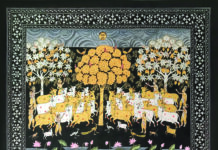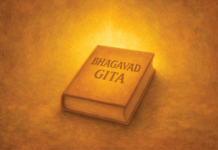Music education nurtures emotional depth, self-expression, and discipline. On World Music Day, let’s honour its power to heal, connect, and inspire personal and collective growth.
Shakespeare may have referred to music as the food of love, but many would agree it’s the food of life itself. Hence, World Music Day, celebrated on June 21, is the apt occasion to reflect on the importance of teaching this beautiful art.
The Sunday Guardian spoke to vocalists and vocal teachers on the subject. We have Jeanne Merchant, a seasoned vocal coach known for her soulful, independent music exploring themes of self-expression, empowerment, emotional honesty and reinvention; Nush Lewis, a multidisciplinary composer, harpist and educator whose work blends music and storytelling highlighting one’s identity and the search for emotional truth. She is also the founder of OffSet Education, where she builds inclusive spaces for artistic learning, collaboration and community engagement; Harini Iyer, a multifaceted Indian singer, songwriter, composer, music educator and the founder of The Tamil Jazz Collective, known for fusing classical Indian music with contemporary genres like Soul, RnB and Jazz; Shrea Suresh aka Shrae, a vocalist, educator and songwriter whose work is rooted in jazz and neo-soul, reflecting emotional honesty and genre-fluid artistry; and Shannon Donald, a singer-songwriter and vocal coach, currently touring as co-singer with Farhan Akhtar and Ayushmann Khurrana.
Excerpts from an edited interview below:
Q: What is the importance of teaching music now when technology claims to do everything?
Jeanne Merchant (JM): As a voice coach, I teach vocalists to dig deep into their souls and draw from their deepest emotion to help them connect with a piece of music in a soul-stirring way. I include tips on enhancing technique to help them with their unique sound.
In my opinion, technology handles things scientifically but when it comes to matters of the heart and spontaneity in art, it just doesn’t match up. At our vocal sessions we sing for joy and happiness and to connect with people through our music.
Q: If you could change one thing about how the music industry treats new or young artists, what would it be?
Nush Lewis (NL): I feel the industry needs to stop shoving an algorithm in everyone’s face. It should not dictate your sound, your story and how you write and produce music. It’s also important to change the regulation of streaming revenue.
Q: How can music students take care of their mental voice in addition to their vocal one?
Harini Iyer (HI): I believe it’s important to practice a strong breathing and grounding routine along with your vocal riyaz. I always make my students focus on the spiritual aspect of singing by asking them questions to make them reflect on why they are doing what they are doing. Their mental voice is also a muscle, so approaching things from the standpoint of curiosity and love is something I constantly drill into my students’ minds instead of fear-based programming.
Q: What have been your biggest learnings in your career as a vocal teacher?
Shrea Suresh (SS): Honestly, the biggest lesson has been that learning never ends. You go in thinking you are the teacher, but more often than not, your students end up teaching you too. With every doubt they bring to me and every little vocal hurdle, they push me to revisit my own knowledge. Teaching keeps me grounded and curious. It’s made me realise that to teach well, you have to keep studying and growing. There’s no final destination, it’s just one big journey of evolving with your art.
Q. Do you think vocal training can be therapeutic? How does it help students beyond just singing better?
Shannon Donald (SD): When we sing, we release a melody. This act should be similar to exhaling, which helps us relax. Good technique can be very relaxing, as it takes away the mental stress of vocal delivery. Once mastered correctly, singing can indeed be very therapeutic.
Q: How do you encourage continued creativity among your students?
JM: My training helps them develop cognitively and gives them a certain discipline which trains their listening ear and vocal muscles. They can then draw from their well of emotional experiences and create with their soul and technical knowledge. I believe human beings thrive on being artistically creative and I want to hone those skills.
Q: What is the toughest part of mentoring young talent?
HI: Young talent nowadays has too much access to other people’s worlds through social media which leads to constant comparisons. Students forget to work on building their own voice, and want to sound like ‘somebody famous’. They are so focused on the output that they aren’t able to enjoy the process, so they refuse to put in the hard work, looking instead for instant gratification. Hence, they are easily dejected and that’s why I bring in spirituality into music.
Q: What advice would you give to a young person choosing between music as a hobby and a profession?
SS: If it’s a hobby, just enjoy it, make it your safe space and joy. But if you are thinking of going professional, then you have to show up even on the days when it sucks. That means being consistent – even borderline obsessed sometimes. You have got to really love it, not just the idea of it. And you have to be willing to put music before everything else in life. There’s a lot of sacrifice involved, but also a lot of magic, if it’s truly what you are meant to do.
Q: A message you want to give to your students, and all young aspiring musicians, this World Music Day?
NL: My message for aspiring musicians would be – don’t take yourself too seriously. Making music is a beautiful journey. Have fun while you are at it. Learn to diversify as it will add to your profile as a musician and as someone who contributes to the industry at large.
JM: Music is your lifeline in a day and age where many people are troubled, anxious, depressed and panic-stricken, so use it to your advantage and reap the holistic benefits for your heart, mind, body and soul. It’s literally all the serotonin, dopamine, oxytocin and endorphins you need to calm you down in a non-expensive and non-harmful, organic way.
HI: We are extremely blessed to have music in our lives and those of us lucky enough to make music are even more so. We have the privilege of making people feel something greater than themselves. That is a huge responsibility and I feel every musician should be aware of that and elevate themselves to step into that role.
SS: Music has been my anchor through chaos. It’s my way of feeling heard. I write lyrics instead of journalling because that’s how I express myself. On World Music Day, I hope everyone finds that one song that feels like home, or has the courage to sing even if their voice shakes. Whether you are on stage or in the shower, music belongs to all of us. And if you’re a musician, buckle up and practise.
SD: Musicians need to keep doing what they’re doing, because music matters!
Noor Anand Chawla pens lifestyle articles for various publications and her blog www.nooranandchawla.com.








